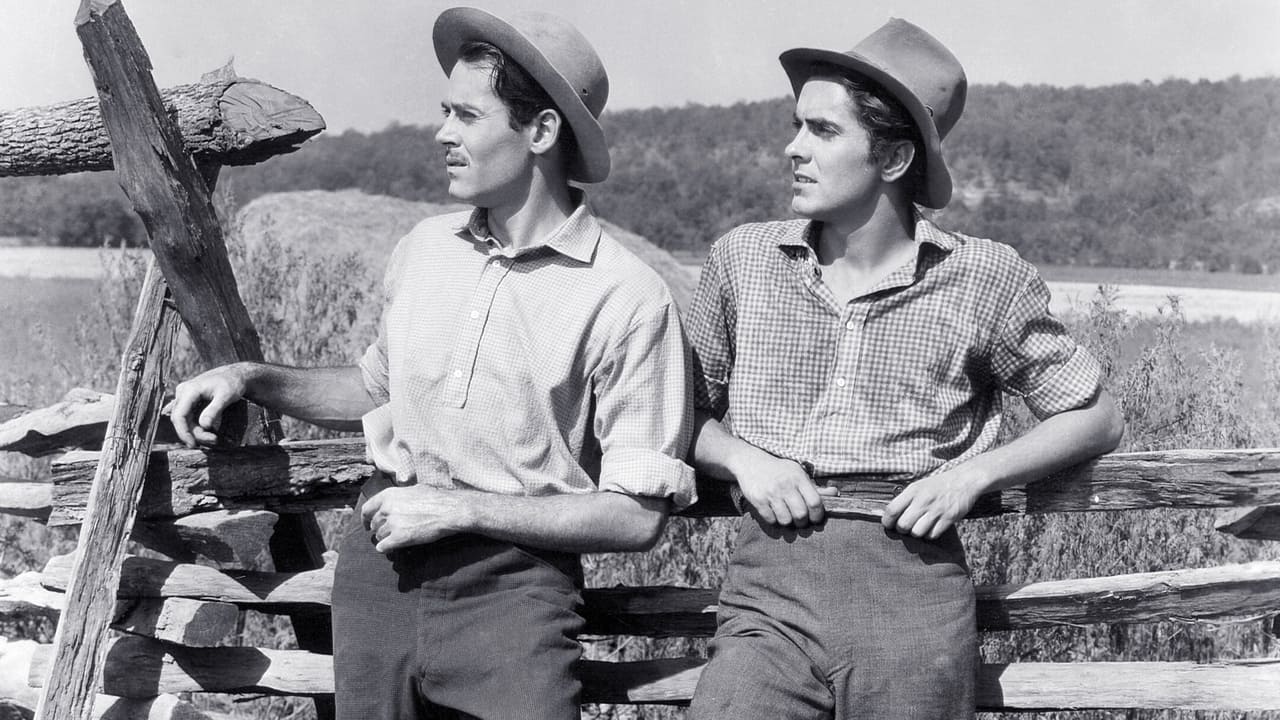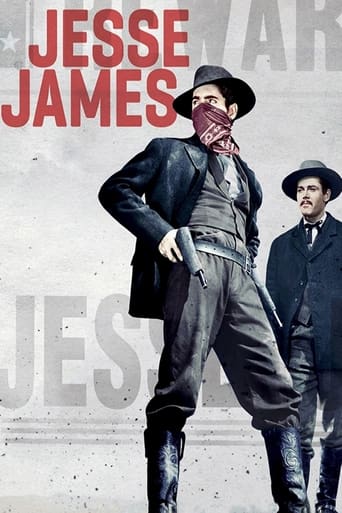

Purely Joyful Movie!
... View MoreBlending excellent reporting and strong storytelling, this is a disturbing film truly stranger than fiction
... View MoreEasily the biggest piece of Right wing non sense propaganda I ever saw.
... View MoreWhile it is a pity that the story wasn't told with more visual finesse, this is trivial compared to our real-world problems. It takes a good movie to put that into perspective.
... View MoreThis brilliant movie illustrates eminently a brutal chapter in Western socio-economic history: the creation of the iron horse, the transcontinental railroad. One of America's greatest novelists called it 'The Octopus'. It strangled without mercy the farmers with its multiple sucker-bearing arms. In Frank Norris' novel, the strangulation happened through highly exaggerated prices for the transportation of farm products; in other words, an extortion by a monopoly. In this movie, the railroad owners try to force the farmers to sell their land for a pittance by lying ('the government will give you nothing') or by naked violence. They need new land for extensions of their railroad grid. One of the families which resist the violent extortion is the James household (Frank, Jesse and their mother). When their house is destroyed by arson and their mother is killed, the brothers take the law in their own hands and seek revenge by robbing the railroad clients, the passengers.This movie shows a lawless and corrupt country, where the power lies in the hands of the money men, who have friends in high places and who control the decision makers (the lawmakers and the judges). On the other hand, at the end of the 19th century, the press (the media), here the 'Liberty Weekly Gazette', was still independent, and supported the farmers against blatant arbitrariness.This is a superb movie, not only for its perfect depiction of a not so distant past, but also, for its still highly relevant themes, like social and economic power, corrupt politics and freedom (of speech). Excellent direction by Henry King with an outstanding cast (T. Power, H. Fonda, R. Scott). A must see.
... View MoreTyrone Power is the outlaw Jesse James brought to life in director Henry King's 1939 treatment of the story. This holds nothing back and packs a wallop from beginning to end. We begin with Brian Donlevy going from house to house swindling people out of their property and paying little to no money for it. Apparently, he's a representative of the railroad company, whose new tracks have to go through their property. When they get to Jesse James' mother, played by Jane Darwell, to sign the deed, she shows some sense and flat out won't sign it. A ruckus is started when sons Jesse and Frank order them off their property with a gun and a fistfight. When Brian Donlevy goes to the law and asks to be deputized to arrest Jesse James, they go back after them. But someone has already told them to 'git,' so they ran. It's easy to say these things, I know, but that was their first mistake. From there on, one sees the path that Jesse James and brother Frank get on. Through a series of bad decisions and poor judgment, they rationalize what they do against the railroad company that did wrong by so many of their neighbors, by robbing trains of the passengers' money and encouraging them to sue the company for compensation, because the railroad company is liable for it. They segue to banks and continue their criminal activities. The movie also stars Henry Fonda, as brother Frank James, Randolph Scott as the law, Donald Meek as the railroad president, John Carradine as "the coward" Robert Ford, and Slim Summerville, as a jailer who has a plum role as a jailer who says "them James boys keep their word. When they say they's going to do something, they do it." He was quite good. But despite the whole production and treatment of the story, Henry Hull practically stole the show as the crankiest, sermonizing, over-the-top, over-acting, hammiest newspaperman ever, who's all the time dictating another editorial on lawyers (liars), governors, or you name it. "If we are ever to have law and order in this here area, we have to take out all the (fill in the blank) and shoot 'em down like a dog." Also, Nancy Kelly is memorable and touching as "Zee," who devotedly and almost stubbornly loves Jesse, no matter what. I still can see her in bed distraught over Jesse and having just had a baby. If you want a non-stop, emotional film about the story behind Jesse James, which has no music score throughout the film (I was very impressed by that,) then this is for you. But having said all that, I was a little miffed about the ending speech given by Henry Hull, who says they're not ashamed of Jesse James, because he represented the fighting spirit and gumption of the human race needed in order to overcome wrongs done to you. He did interject they don't have much to say to the fact that Jesse James ultimately became an outlaw. What can family say or do, when a loved one goes down the wrong path, but stay on their side and love them and pray for their salvation? The movie shows what Jesse's original motivations were and also when and where he started to be out of control. And while I know they tried to be fair to Jesse James and to its subject matter and to show him as human, I still feel it glamorizes the outlaw lifestyle, as the film Bonnie and Clyde does. But, I do recommend this film, because it is an example of movie-making at its best. If Henry Hull's speech was made at the end to leave you thinking about who we see as our role models and to question the real credibility of the choice of Jesse James as one, then that's good. His life is here to scrutinize. Decide for yourself.
... View MoreWhen I was a kid, back in 1949, this movie was already 10 years old. One Sunday, my brother comes inside and tells my Dad that "Jesse James" and "The Return of Frank James" were playing downtown at the Pix. My father dropped his newspaper, told my Mom to "hold dinner" and put us in the car to see these two gems. The extremely popular "Jesse James" quickly spawned a sequel; both made by A-list director (Henry King & Fritz Lang). The movies meld together to perfection.Beginning with a great screenplay by Nunnally Johnson, top flight performances, and the exceptional beauty of original 3-strip Technicolor, these movies are often imitated, never equaled. 1972's "Butch Cassidy and the Sundance Kid" was obviously an imitation of "Jesse James" in mind, in spirit.We no longer have top stars like Tyrone Power and Henry Fonda, but at least they live on in videos. Wonderfully committed to the Confederate cause, these movies take a few liberties with history, are accurate in many details; but most important in casting "the railroad" as the bad guys. I remember my history, and while many like to bellyache about slavery, the real slave-masters of the era were the railroads -- who stole the earnings and impoverished the lives of the ordinary Americans living in their path. As with slavery, with the full blessing of the government.Once hard to see, I now watch this double feature every year. They never grow old.
... View MoreAnother movie from Hollywood's wonder year 1939, but this time not of the first rank, being a watchable but slightly underpowered western on the life and times of legendary bandit figure Jesse James. The premise is set up from the off, those gol-darned railroad company men hornswoggling the innocent farmers of their land to make way for the Iron Horse and making the mistake of being responsible for the death of old Ma James, whose two sons Frank and Jesse immediately take up the cudgels on behalf of the little people. Herein lies the problem, there's very little light and shade in the film, the bad guys, railway owner McCoy, chasing lawman Runyan and mostly of course the treacherous Ford brothers (assassin Robert suitably nervous in the act of murder, replete with Judas Iscariot beard) are painted in broad strokes against which Jesse and Frank James can't help but look whiter than white, when in truth, matters were much greyer, I would imagine. Even nice guy marshal Randolph Scott turns near the end with his designs on Jesse's missus. Naturally 30's Hollywood runs with the legend but it does reduce the film to a fairly predictable good guys versus bad guys plot with only the downbeat ending (Jesse shot in the back by Robert Ford) adding some depth and gravitas to proceedings, ending as it does with the famous epitaph on James' tombstone. Action sequences are few and rarely thrilling. Tyrone Power is suitably handsome if somewhat slight in the lead part but he's well backed up by the more down to earth conviction acting of Henry Fonda. The remainder of the cast are adequate and while Henry Hull gets some mileage out of a good running gag on his editorials against everybody who upsets him at a given moment, he, like many others, frequently slips into caricature. The colour photography is lovely to behold and the direction stolid rather than spectacular. There are a couple of unwitting racial slur terms I could have done without too but there's probably more of that to rail against in "Gone with the Wind", so I'll let them pass. Spawned a sequel in the Fritz Lang directed "Return of Frank James", again to mixed results, but at least therein the double-crossing Ford brothers get theirs in the end!
... View More